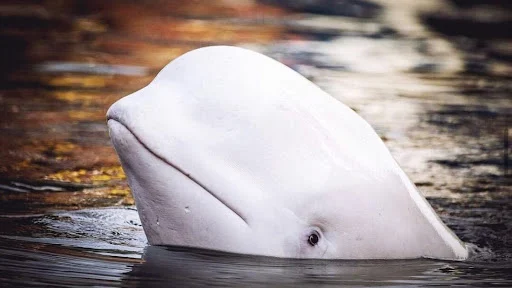A beluga whale nicknamed Hvaldimir, after his strange harness prompted suspicions he was a Russian spy, has been found dead in the southwest of Norway.
A white beluga whale named “Hvaldimir,” first spotted in Norway not far from Russian waters with a harness that ignited rumors he may be a Moscow spy, has been found dead.
The whale’s carcass was discovered floating off Risavika Bay in southern Norway on Saturday by a father and son who were out fishing, Norwegian public broadcaster NRK reported.
“Hvaldimir was not just a beluga whale; he was a beacon of hope, a symbol of connection, and a reminder of the deep bond between humans and the natural world,” Marine Mind, a nonprofit organisation that had been tracking his movements, said on social media
Sept 2 (Reuters) - A beluga whale that was suspected of spying for Russia after being discovered in Norwegian waters five years ago has been found dead, according to the non-profit organisation that had been monitoring the whale.
The body of Hvaldimir - a combination of the Norwegian word for whale and the first name of Russian President Vladimir Putin - was spotted floating in the sea by a father and son fishing in southern Norway over the weekend, Norwegian public broadcaster NRK reported
Hvaldimir, a combination of the Norwegian word for whale, “hval”, and the first name of Russia’s President Vladimir Putin, was first spotted off Norway’s far northern coast in 2019.
His man-made harness, with what appeared to be a mount for a camera stamped with the words “Equipment St Petersburg”, fuelled speculation that he was a “spy whale“.
Hvaldimir was not just a beluga whale; he was a beacon of hope, a symbol of connection, and a reminder of the deep bond between humans and the natural world," the Marine Mind NGO said on social media.
Hvaldimir was wearing a harness with what appeared to be a mount for a small camera when he was first found in 2019 near the island of Ingoya in Norway's north, around 300km (190 miles)from the Russian maritime border. The harness was stamped with "Equipment St Petersburg" in English
Norwegian officials said Hvaldimir may have escaped an enclosure and been trained by the Russian navy as he appeared to be accustomed to humans
After Hvaldimir was found dead, his carcass was lifted out of the water with a crane and taken to a nearby harbour for further examination.
“We’ve managed to retrieve his remains and put him in a cooled area, in preparation for a necropsy by the veterinary institute that can help determine what really happened to him,” marine biologist Sebastian Strand told NRK, adding that no major external injuries were visible on the animal
The whale was very interested in people and responded to hand signals, leading Norway's domestic intelligence agency to presume he had been held in captivity in Russia as part of a research programme before crossing into Norwegian waters.
Moscow has never responded to the allegations about Hvaldimir.
"It’s absolutely horrible," marine biologist Sebastian Strand, who worked with Marine Mind, told NRK. "He was apparently in good condition as of (Friday), so we just have to figure out what might have happened here.
Strand, who has monitored Hvaldimir’s adventures for the past three years on behalf of Marine Mind, said he was deeply affected by the whale’s sudden death.
“It’s absolutely horrible,” Strand said. “He was apparently in good condition as of [Friday). So we just have to figure out what might have happened here.”
Hvaldimir was 4.2 metres (14ft) long, weighed 1,225kg (2,700 pounds) and was thought to be between 14 and 15 years old.
Over the past five years, he had been seen in several Norwegian coastal towns and it was clear that he was very tame and enjoyed playing with people, NRK said.
Norwegian media speculated that rather than being a “spy whale”, Hvaldimir had actually been a “therapy whale” of some kind.
Beluga whales, whose habitat is the northern waters of Greenland, Norway and Russia, usually live to between 40 and 60 years of age
Tags:
Environment




